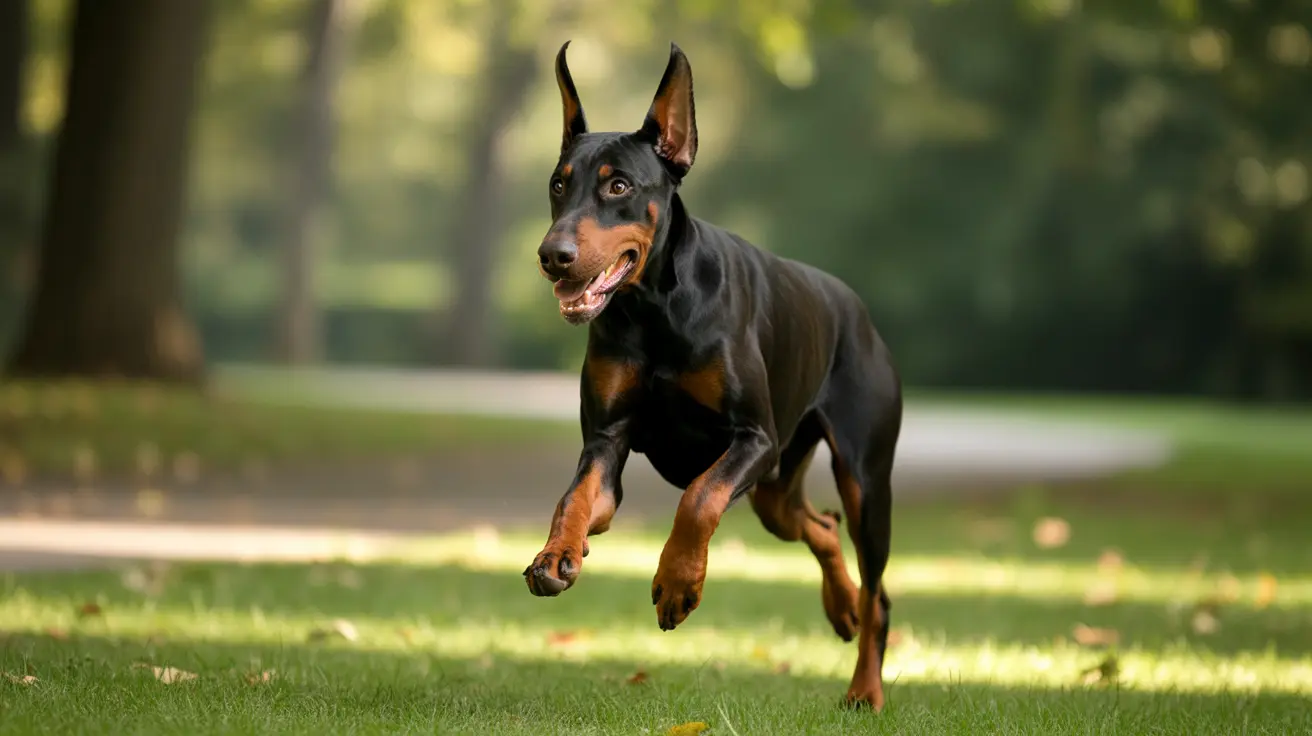Introduction
Considering adding a Doberman Pinscher to your family? Understanding the Doberman pros and cons is crucial for making an informed decision about this remarkable breed. Known for their striking appearance, intelligence, and unwavering loyalty, Dobermans have evolved from their working dog origins to become beloved family companions. However, like any breed, they come with specific characteristics that may or may not suit your lifestyle.
In this comprehensive guide, we'll explore the advantages and challenges of Doberman ownership, helping you determine if this noble breed aligns with your capabilities and expectations.
The Advantages of Owning a Doberman
Superior Intelligence and Trainability
One of the most significant benefits of owning a Doberman is their exceptional intelligence. Ranked as the sixth smartest dog breed, Dobermans excel in obedience training and can learn new commands with minimal repetition. Their sharp minds and eagerness to please make them highly adaptable to various roles, from family companions to service dogs.
Impressive Protection Abilities
Dobermans possess natural protective instincts that, combined with their imposing presence, make them excellent guardians. Their alertness and loyalty mean they'll naturally watch over their family, typically deterring threats through their presence alone rather than aggression.
Low Maintenance Grooming
Despite their sophisticated appearance, Dobermans are surprisingly low-maintenance in the grooming department. Their short, smooth coat requires minimal upkeep - usually just weekly brushing and occasional baths. This makes them an ideal choice for owners who prefer spending time on activities rather than grooming sessions.
The Challenges of Doberman Ownership
High Exercise Requirements
Dobermans are high-energy dogs that need substantial daily exercise - typically 1-2 hours or more. Without adequate physical activity and mental stimulation, they may develop destructive behaviors. Potential owners must be committed to providing regular exercise through activities like running, hiking, or structured training sessions.
Health Considerations
The breed is prone to several serious health conditions, including dilated cardiomyopathy (DCM), hip dysplasia, and von Willebrand's disease. These health issues can result in significant veterinary expenses and require careful monitoring throughout the dog's life.
Separation Anxiety Issues
Dobermans form intense bonds with their families and can struggle with separation. This strong attachment often leads to separation anxiety when left alone for extended periods, potentially resulting in destructive behavior or excessive vocalization.
Making the Right Choice
Before bringing a Doberman into your home, honestly assess your lifestyle, living situation, and commitment level. These dogs thrive in active households where they receive plenty of attention, exercise, and mental stimulation. They're not well-suited for apartment living or families who are away from home for long periods.
Frequently Asked Questions
What are the main health issues Dobermans are prone to, and how can I manage them?
Dobermans are susceptible to dilated cardiomyopathy, hip dysplasia, and von Willebrand's disease. Regular veterinary check-ups, genetic testing, and maintaining a healthy lifestyle are essential for managing these conditions. Work with reputable breeders who screen for genetic health issues.
How much daily exercise does a Doberman need to stay healthy and happy?
Dobermans require 1-2 hours of daily exercise, including both physical activity and mental stimulation. This should include vigorous exercise like running or playing, combined with training sessions or puzzle toys for mental engagement.
What temperament traits make Dobermans good family pets and protectors?
Dobermans are naturally loyal, intelligent, and protective. When properly socialized, they're affectionate with family members while remaining alert to potential threats. Their strong desire to please and high trainability make them excellent family guardians.
How can I prevent separation anxiety and destructive behavior in my Doberman?
Start separation training early, gradually increasing time alone. Provide plenty of exercise before leaving, use enrichment toys, and consider crate training. Some owners find that having a consistent routine helps reduce anxiety.
What are the grooming requirements and challenges of owning a Doberman Pinscher?
Dobermans have minimal grooming needs, requiring weekly brushing and occasional baths. Their short coat sheds moderately year-round. The main challenge is their sensitivity to extreme temperatures due to their thin coat.
Conclusion
The Doberman Pinscher offers an impressive combination of intelligence, loyalty, and protection capabilities. While they excel as family companions and guardians, they require dedicated owners who can provide consistent training, extensive exercise, and devoted attention. By understanding these Doberman pros and cons, you can make an informed decision about whether this magnificent breed is the right choice for your household.






